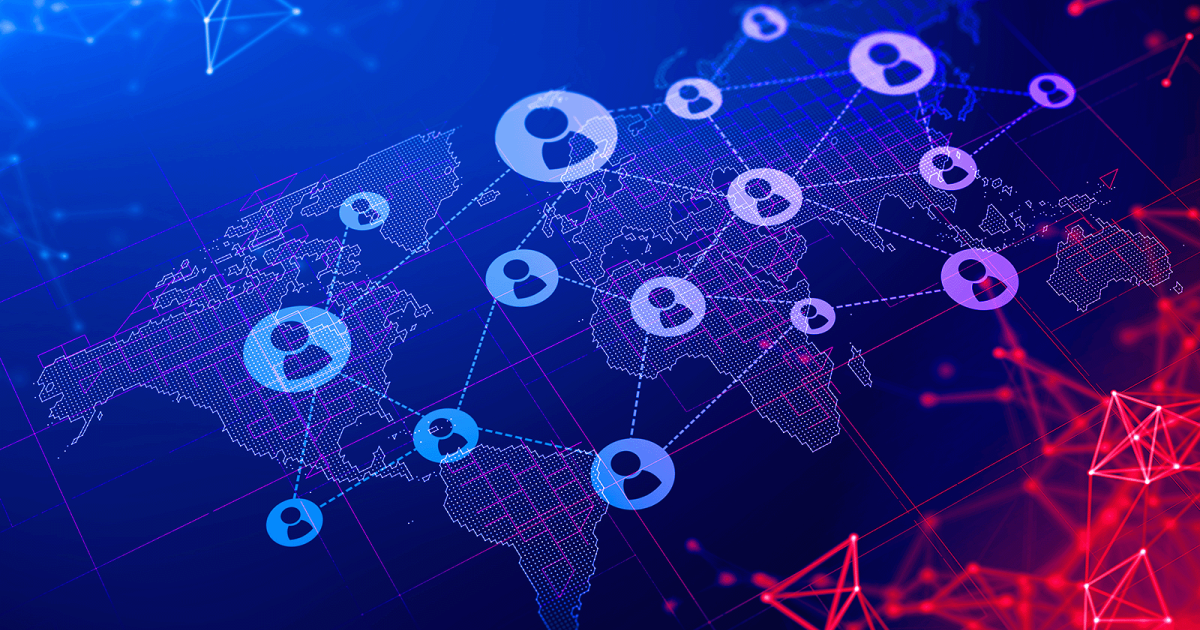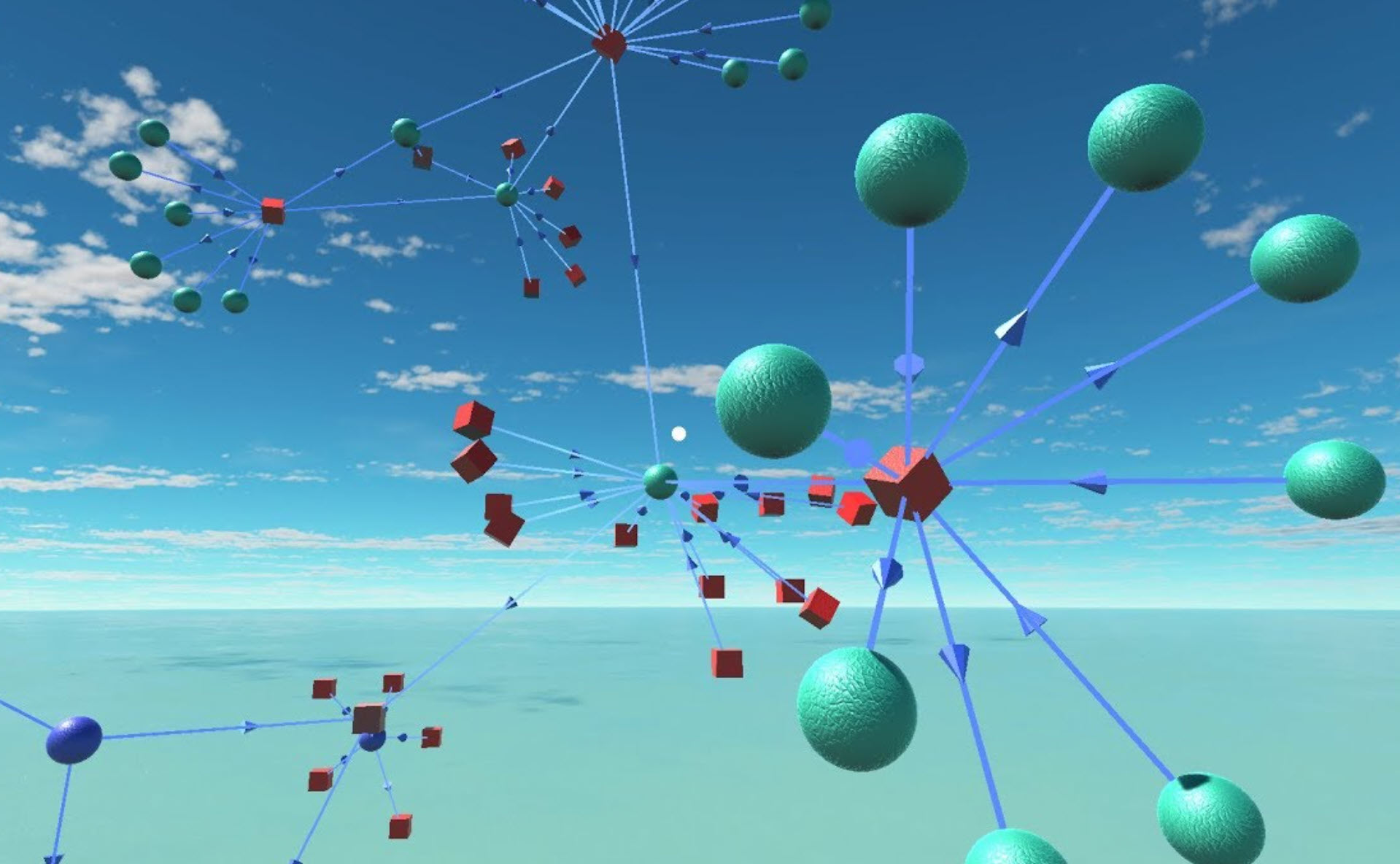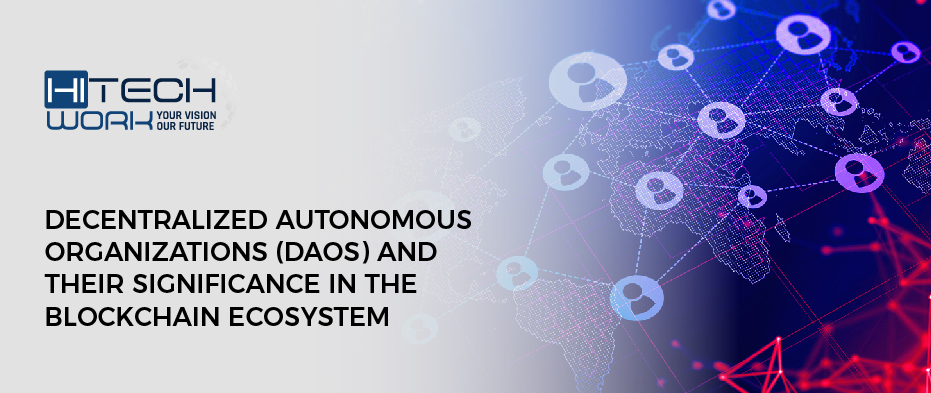Blockchain In Decentralized Autonomous Organizations (DAOs)

Decentralized Autonomous Organizations (DAOs) are a relatively new and rapidly evolving concept in the world of business and governance. At their core, DAOs leverage the power of blockchain technology to create organizations that are autonomous, transparent, and decentralized. This means that DAOs operate without the need for traditional hierarchical structures, relying instead on smart contracts and community consensus to make decisions and manage operations. The potential of DAOs to revolutionize the way we think about organizations is vast, promising a future where decision-making is more democratic, efficient, and resistant to censorship.

Introduction

The concept of DAOs emerged from the intersection of blockchain technology and the desire for more decentralized and democratic forms of organization. Unlike traditional organizations, which are governed by centralized authorities, DAOs rely on a distributed, permissionless ledger system to record and verify all actions, transactions, and governance decisions. This creates a transparent and auditable record of the DAO’s activities, ensuring that all members have access to the same information and can participate in the decision-making process.
The potential applications of DAOs are wide-ranging, encompassing various sectors like finance, governance, supply chain management, and even creative industries. These organizations can be used to create new forms of collective ownership, streamline fundraising processes, and foster more equitable and transparent collaboration among individuals and communities.
This article will delve into the key aspects of blockchain technology in DAOs, exploring how this technology empowers these organizations to operate autonomously and efficiently.
Smart Contracts
Smart contracts form the backbone of any DAO. These self-executing programs, written and stored on the blockchain, automate the execution of agreements and transactions according to predefined rules. This eliminates the need for intermediaries and reduces the risk of human error or manipulation.
- Automated Execution: Smart contracts automatically execute predefined agreements, eliminating the need for intermediaries and reducing the risk of human error or fraud.
- Transparency and Immutability: All code and transactions associated with a smart contract are publicly viewable and immutable, fostering transparency and trust among participants.
- Security and Auditability: Blockchain technology provides a high level of security, preventing tampering with the code or transactions. The immutability of the blockchain allows for audits and verification of all activities.
- Reduced Costs: By eliminating the need for intermediaries, smart contracts can significantly reduce transaction fees and administrative costs.
Tokenization
DAOs often utilize cryptocurrency tokens to represent ownership, voting rights, and access to the organization’s resources. These tokens can be used to incentivize participation, govern the organization, and facilitate transactions within the DAO’s ecosystem.
- Ownership and Governance: Tokens can be used to represent ownership in the DAO, with token holders having voting rights on key decisions and proposals.
- Incentives and Rewards: Token-based reward systems can motivate members to contribute to the DAO’s development and success.
- Fundraising and Capital Formation: DAOs can use token sales to raise funds and finance their operations, offering a new avenue for capital formation.
- Utility Tokens: Some DAOs utilize utility tokens that can be used to access services, products, or other resources within the DAO’s ecosystem.
Decentralized Governance
Decentralized governance is a fundamental principle of DAOs, where decisions are made through a collective process that allows all members to participate. This contrasts with traditional organizations, where decision-making is often centralized in the hands of a few individuals.
- Community Participation: DAOs foster a collaborative and participatory environment, empowering all members to contribute to decision-making processes.
- Voting and Proposals: Decisions are made through voting mechanisms, where token holders can vote on proposals and initiatives.
- Transparency and Accountability: The blockchain-based ledger ensures transparency and accountability, as all voting records and decisions are publicly auditable.
- Resistance to Censorship: Decentralization makes it difficult for any single entity to control the DAO or censor its activities.
Ecosystem Development
DAOs can foster vibrant ecosystems by creating a network of interconnected services, applications, and tools. This can enhance the utility of the DAO, attract new members, and contribute to its overall growth.
- Interoperability: DAOs can be designed to interact with other DAOs and blockchain networks, fostering a more interconnected and decentralized ecosystem.
- Development Tools and Resources: DAOs can create libraries, frameworks, and tools that enable developers to build applications and services that leverage the DAO’s capabilities.
- Community Engagement: DAOs can actively engage their community through forums, social media, and events to foster a sense of belonging and shared purpose.
- Partnerships and Integrations: DAOs can collaborate with businesses, organizations, and other DAOs to expand their reach and impact.
Conclusion
Blockchain technology has paved the way for the emergence of DAOs, organizations that are autonomous, transparent, and decentralized. These organizations offer a promising alternative to traditional hierarchical structures, empowering communities to collaborate, innovate, and govern themselves.
DAOs leverage smart contracts to automate agreements and ensure transparency, while tokenization provides a mechanism for representing ownership, voting rights, and access to resources. Decentralized governance fosters a participatory environment where decisions are made through collective consensus.
Despite their potential, DAOs are still a nascent concept facing challenges related to regulatory uncertainty, scalability, and security. As blockchain technology continues to evolve and mature, DAOs are likely to play an increasingly important role in shaping the future of business, governance, and society as a whole.
The benefits of DAOs are undeniable. They offer greater transparency, accountability, and inclusivity compared to traditional organizations. However, it’s important to acknowledge that DAOs are not without their challenges.
- Regulatory Uncertainty: The legal and regulatory landscape surrounding DAOs is still evolving, creating uncertainty for both DAO participants and regulators.
- Security Risks: DAOs are susceptible to security vulnerabilities, such as smart contract bugs or hacks.
- Scalability Issues: The current blockchain infrastructure may not be able to handle the high transaction volume required for large-scale DAOs.
Moving forward, the success of DAOs hinges on the ability to address these challenges while further developing their capabilities and applications. As the technology continues to advance, we can expect to see more innovative and impactful use cases of DAOs across various industries, ultimately contributing to a more decentralized and equitable future.